Regarded as one of China’s top travel destinations, Hangzhou is famous for its stunning scenery, rich culture, and history. This guide will take you through the ideal tour packages for Hangzhou in 2025, highlighting the West Lake, the Longjing tea plantations, and the city’s hypermodern attractions. Prepare to discover captivating cultural activities, tailored itineraries, and deep dives into this city’s breathtaking spots. For the nature lover, history buff, or foodie, this blog covers it all.
What Are the Must-See Hangzhou Attractions?
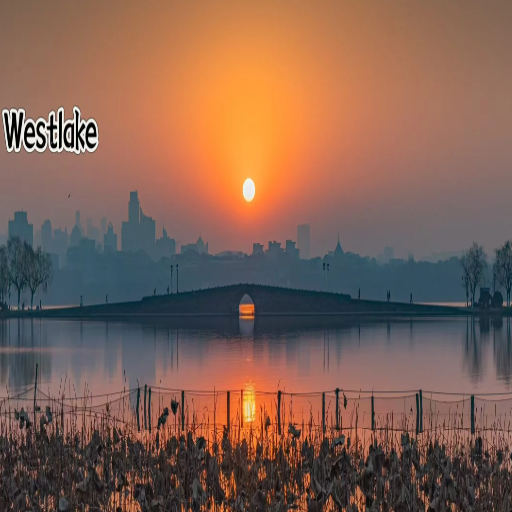
What Are the Must-See Hangzhou Attractions
With so much variety, Hangzhou is a great place for any kind of traveler to visit. To begin with, there’s the West Lake. This World Heritage Site attraction boasts beautiful lake views, temples, and boat rides. Then, there are the Longjing Tea Plantations. At these plantations, you can try authentic Dragon Well tea and learn about its rich history for centuries. Ancient Lingyin Temple, a famous Buddhist Chinese temple located within the Feilai Feng Grottoes, is a must-see. Visit the tea plantations and head over to Hefang Street to see the more modern side of Hangzhou. Here, you will find many stalls selling street food, local crafts, and various goods in a lively atmosphere.
Exploring the Picturesque West Lake
West Lake combines stunning natural beauty with a rich cultural heritage. Numerous islands and temples add to its beauty. First, you can walk down the Su Causeway, a famous narrow path with willow trees and lotus flowers. The Su Causeway extends for about 2.8 kilometers and gives visitors an incredible view of the lake they will never forget.
You have to check out the Three Pools Mirroring the Moon, a beautiful sight on moonlit nights, and the Leifeng Pagoda, a historic tower that is famously known. For those who would enjoy a soothing encounter, a boat trip across the lake lets you appreciate the splendid waters and glance at the beautiful islands.
Aspects for your visit:
- Walking Distance: Su Causeway – ~2.8 km
- Boat Ride Duration: Approx. 30–60 minutes
- Best Viewing Times: Early morning or sunset for optimal lighting and smaller crowds
- Accessibility: Most paths and boat rides are wheelchair-friendly
The charm of West Lake is that it offers a combination of nature and culture, which is always appreciated and enjoyed.
Visit the Historic Lingyin Temple
Linyin Temple, located in the green hills of Hangzhou, is one of China’s most famous Buddhist temples. Its name translates to Temple of the Soul’s Retreat, which describes the temple’s beautiful and prayerful nature. Built in 328 AD, the temple boasts a rich history, delicate architecture, and critical cultural treasures. Visitors can savor the peaceful and sacred ambiance.
Aspects for your visit:
- Opening Hours: 7:30 AM – 5:00 PM
- Admission Fee :
- Temple Entrance – ¥45
- Feilai Feng Scenic Area – ¥25
- Estimated Visit Duration: 2–3 hours
- Best Visiting Time: Early morning to avoid crowds and enjoy a peaceful experience
- Accessibility: Wheelchair-accessible pathways with assistance available at entrances
Lingyin Temple has several key attractions, such as the towering Buddha statue, the magnificent Hall of the Great Hero, and Feilai Feng, or Flying Peak, famous for its ancient Buddhist grottoes and stone carvings. Visitors thoroughly enjoy the multidimensional cultural discovery and exceptional nature of this place.
Experience the Hangzhou Grand Canal
Going to the Hangzhou Grand Canal was a trip that placed me in the middle of beautiful nature fused with historical richness. Being one of the longest and oldest canals globally, it gave me a sneak peek into pre-historic engineering and how the past and the present mesh together. Even though the Hangzhou portion is narrow and highlights a particular culture, the canal spans 1,776 kilometers. I took a wonderfully slow boat ride. An awe-inspiring cultural heritage combined with the tranquil environment filled me with awe. Waterways, bustling markets by the dock, arched bridges, and everything else were so well-kept that it felt like I was in an entirely different world. The prices for the boat tour during the canal’s most beautiful time, the evening, were 60 RMB to 120 RMB.
How to Plan the Perfect Hangzhou Tour Itinerary?
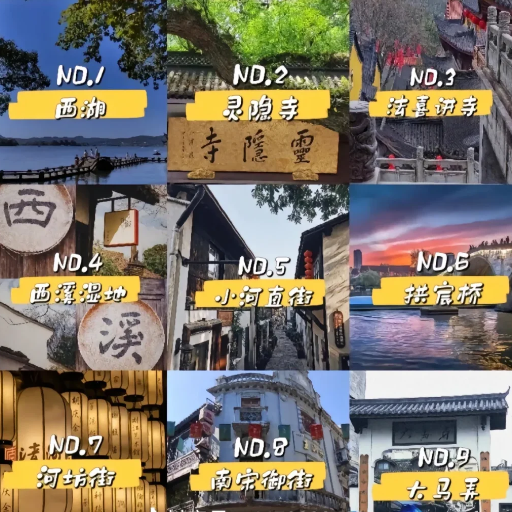
How to Plan the Perfect Hangzhou Tour Itinerary
When completing my exploration of China, I plan on finishing with Hangzhou. My planning has impressed me deeply, as a beautiful blend of culture and nature is available for my exploration. I have made a rough itinerary, which I will finalize once my date is nearer. The Western Lake and The Grand Canal are two locations I have always wanted to visit, and I now finally have the opportunity to complete my long-held desires. Alongside these locations, I also plan to reserve time for Lingying Temple and the tea plantations at Longjing village. I will also book my travel and accommodation at highly rated restaurants my tour guides mention so that I can have an authentic experience of Hangzhou’s local delicacies, such as The Dongpo Pork and West Lake Fish in Vinegar Sauce. Moreover, I plan on using the public transportation available, which will be very useful for me during my stay. Finally, I plan on going to Hangzhou during fall or spring to make the most of the vibrant landscape and pleasant weather.
Crafting a Day Tour Around Hangzhou
To create a productive and fun day tour in Hangzhou, consider these tips:
Morning: Start the day fresh by walking around or cycling near West Lake, one of the top attractions in Hangzhou. Other places of interest include the Broken Bridge, Leifeng Pagoda, and Su Causeway, which are beautiful. Plan to spend around 2-3 hours here. Bring a camera and comfortable shoes so you can walk a lot. If you prefer to cycle, grab a public bike from a local bike station. The average price for bike rentals is 1-3 RMB per hour.
Midday: To grab lunch, check out Hefang Street, an old town where you can try delicious local foods like Dongpo Pork or Beggar’s Chicken. Set aside 1.5 hours for this visit to purchase traditional souvenirs and snacks.
Afternoon: After lunch, head to the Lingyin Temple and Feilai Peak Scenic Area. As a famous temple site for Buddhism, Lingyin Temple is known for requiring tickets, which sell for around 45 RMB. Be sure to allocate an estimated 2 hours to appreciate the sculptures on Feilai Peak and explore the temple famous for its ancient sculptures.
Activities for the Evening: In the evening, relax with a stunning boat ride on the Grand Canal or see the Impressions West Lake Lightshow, which combines nature with art. Tickets range from 280 to 600 RMB, depending on the seats, and should be booked in advance for guaranteed entry.
Transportation Tips: For more affordable options, use public buses (fares as low as 1-5 RMB). For a bit more convenience, taxis are a good option too (~15-30 RMB for a short distance). Just be sure that if you use GPS navigation on your phone, input the location in Chinese characters to avoid issues.
Overall, this itinerary provides rich cultural experiences and incredible landscapes, making Hangzhou memorable.
Exploring Hangzhou in 3 Days
Day 1: West Lake and Its Vicinity
Kick off your journey at West Lake, the epicenter of Hangzhou and a UNESCO World Heritage Site. Walk around the lake and capture beautiful sights such as the Broken Bridge, the melodious willow trees nearby, and the famous pagoda of Leifeng, which is surrounded by fables and history. For a richer experience, stroll along the lakeside (boat rides at 55-150 RMB for different types of boats). Later, head to the Lingyin Temple, one of China’s largest and most ancient Buddhist temples, renowned by many as a holy site. An entry fee to the temple costs roughly 30 RMB, while the magnificent Feilai Feng grottoes can be accessed for an additional 45 RMB.
Tip: Wear properly fitting shoes, as you will often walk here.
Day 2: The Streets and Treasures of Hangzhou
Start your day with a trip to the Meijiawu Tea Plantation, where you can learn about the Longjing tea and also have a chance to taste it while taking in the breathtaking scenes of tea fields. Afterward, go to the China National Tea Museum for tea’s cultural relevance to the country. The entry is free, but guided tours may have extra charges (around 60-80 RMB). End the day at Hefang Street, a modernized district of old building styles, street food, and crafted goods.
Suggestion: Bookings are often mandatory for guided tours of the plantations, so plan accordingly. You can also budget 20-30 RMB for quick visits.
Day 3: Nature vs. Urban Lavishness of Hangzhou
You can finish your trip by visiting the Xixi National Wetland Park, an urban wetland with boat rides (75-120 RMB per person) and perfect wooden bridges. Check out the Alibaba Headquarters or the Hangzhou Olympic Sports Center for a mix of the older and newer parts of town. Take the chance to see the city’s modern technological advancements firsthand. You can also visit Wulin Square to shop for local food from well-known restaurants.
This 3-day itinerary captures the spirit of Hangzhou’s culture and its modern progress, guaranteeing a comprehensive experience for everyone! Pro Tip: Most places offer QR code scanning for information and ticket purchasing, making the experience easier for technologically advanced visitors.
Top Tour Packages for Hangzhou Visitors
I suggest three remarkable tours, each tailored to a different kind of exploration and schedule while roaming around Hangzhou:
- West Lake and Longjing Tea Village Half-Day Tour
For those who appreciate nature and culture, this tour takes you to the famous West Lake and the breathtaking Longjing Tea Village. Sit back, relax, and soak in the vibe during a scenic boat ride followed by a sumptuous tea session while absorbing some insightful information on Chinese tea crafting.
- Duration: Approximately 5 hours
- Includes: Private guide, transportation, West Lake boat tickets, tea session
- Best For: Half-day travelers seeking a cultural getaway.
- Hangzhou Full-Day Private Tour
The most comprehensive view tour covers the highlights of Lingyin Temple, Six Harmonies Pagoda, and the cruise on West Lake. It is ideal for those who want to explore Hangzhou’s lore and scenery more deeply.
- Duration: 8–9 hours
- Includes: Private guide, transportation, lunch, all entrance fees
- Best For: Immersive travelers with a full day dedicated to the city.
- Sunset West Lake Evening Tour with Water Show
Experience the beauty of Hangzhou at dusk with an evening boat tour of West Lake followed by the spectacular “Impression West Lake” light and water show.
- Duration : 3–4 hours
- Includes: Evening cruise tickets, water show admission
- Best For: Visitors seeking a magical and romantic evening experience.
Every package includes expert guides to guarantee a memorable visit—book at least a month in advance, especially during peak seasons.
How can you experience Hangzhou Longjing Tea Culture?
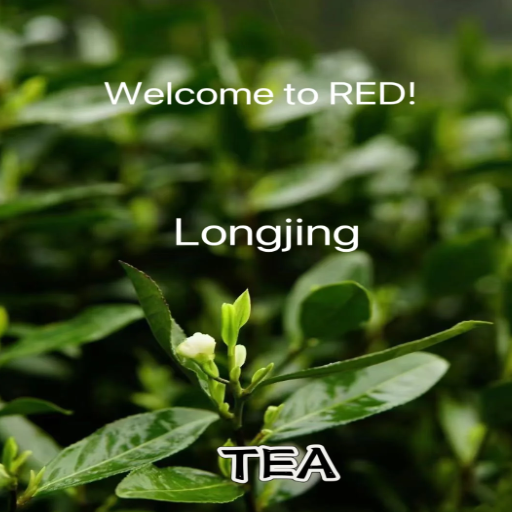
How to Experience the Hangzhou Longjing Tea Culture
Longjing tea is best enjoyed when you step into the heart of Hangzhou’s tea culture. A good starting point would be the Longjing Tea Village, where you could stroll around the village and participate in observation sessions. Here, you could partake in tea-picking sessions and learn the details surrounding the intricacies of tea-making. The fresh tea from the pot can be had alongside freshly brewed tea straight from the plantation. For a more insightful experience, Longjing tea has a rich history, and you can understand its importance through a guided tour. Attending a tea appreciation workshop or visiting a tea house would also further help you immerse yourself in the cultural tradition of Longjing tea.
Visiting the Famous Longjing Tea Plantation
A visit to the famous Longjing Tea Village is essential to appreciate Longjing tea culture thanks to the wonderful people who run this plantation. The guides are ready to show you the various steps involved in making tea. There is a heavy emphasis on participant-guided tours where professionals will demonstrate the art of hand-picking and pan-frying tea. As is the case with any agricultural produce, the famous Longjing tea is best harvested in early spring, around the period of the Qingming Festival. This period is celebrated for having leaves with a soft flavor and rich aroma.
Key Aspects of Longjing Tea Production :
- Harvest Season: Early spring (late March to early April) for premium quality.
- Leaf Selection: The best leaves consist of a single bud or one bud with one young leaf.
- Pan-Frying Temperature: Between 140°F to 160°F (60°C to 70°C) to preserve flavor and nutrients.
- Moisture Content in Finished Tea: Ideally between 4%-5% for optimal storage and taste.
Visitors can value Longjing tea and better understand its refinement and craftsmanship by participating in these activities.
Understanding Traditional Chinese Tea Culture
The tea culture in China is deeply tied to history, philosophy, and daily life. It represents harmony, respect, and tranquility. Preparing and drinking tea serves the purpose of drinking itself and is rather an act of self-reflection and appreciating nature’s gifts.
The Role of Tea in Chinese Culture
Chinese people have been drinking tea for over 4,000 years, from its origins in the Tang dynasty through the Song and Ming dynasties. Tea hospitality is an elaborate ritual balanced with mindfulness and minimalism. Traditionally, tea was also used in medicine to improve digestion and reduce stress.
Common Types of Chinese Tea
- Green Tea: Such as Longjing (Dragon Well), prized for its delicate aroma and grassy flavor.
- Oolong Tea: This variety is of a single origin, but due to its complex production and wide flavor range, it is subjected to flowering and roasted taste.
- Black Tea (Red Tea): Keemun, remarkable for its strong, malty taste, is also part of this group.
- White Tea: This category, for example, also includes Bai Hao Yinzhen (Silver Needle), whose shallow processing facilitates a smooth, subtle taste.
- Pu’erh Tea: A type of tea that gets better in taste as time passes, thus it is superbly earthy with a strong character.
Aspects of Tea Preparation
What is the Outline of Tea Preparation? Every single type of tea in China has specific characteristics regarding its optimal flavor and quality:
- Water Temperature :
- Green Tea: 175°F to 185°F (80°C to 85°C)
- Oolong Tea: 185°F to 200°F (85°C to 95°C)
- Black/Red Tea: 200°F to 212°F (95°C to 100°C)
- Steeping Time :
- Green Tea & White Tea: 1 to 2 minutes
- Oolong Tea: 2 to 3 minutes
- Black Tea & Pu’erh Tea: 3 to 5 minutes
- Adjustments are made based on personal preference and tea leaf quality.
- Tea-to-Water Ratio :
- For an ideal balance, a general guideline is 2 grams of tea leaves per 6 ounces (180ml) of water.
Cultural Etiquette
Etiquette is essential when engaging in traditional tea culture. To show respect, pour tea into the oldest cups first and then sip respectfully, which suggests appreciating the craftsmanship and flavor of the tea.
Cultural customs combined with methods offer variety and refinement in appreciation and deepen the understanding of tea’s role in society and the community.
Touring the Meijiawu Tea Village
Stepping foot into Meijiawu Tea Village for the first time was an experience I will never forget. Located at the foot of the lush green hills of Hangzhou, this village cultivates the famous Longjing (Dragon Well) tea, one of the finest green teas in the world. The highlight of my trip was witnessing a traditional Chinese tea ceremony where the artisans showcased the precision and grace of brewing and serving the tea.
The artisan recommends brewing Longjing tea at 175 to 185 degrees Fahrenheit (80 degrees to 85 degrees Celsius) to preserve the drink’s flavor. With every cup you taste, you are greeted by a mystical aroma of nuts and a sweet fragrance. My appreciation for tea grew as I strolled through the tea plantations and watched the skilled artisans delicately hand-pick tea leaves. This village is not a vacation spot but rather an experience that showcases the traditions and craftsmanship behind every cup of tea.
How to Travel from Shanghai to Hangzhou?
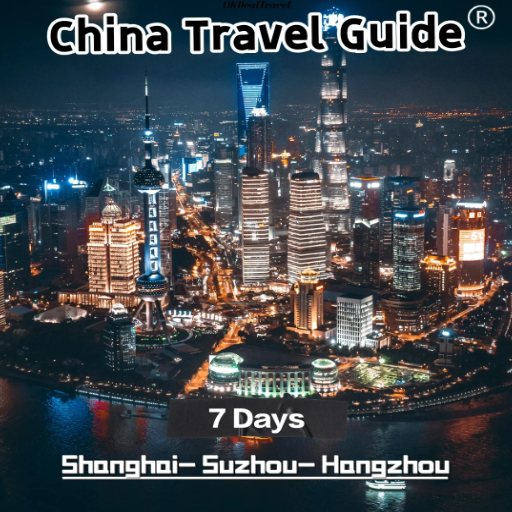
How to Travel from Shanghai to Hangzhou
A high-speed train is the most convenient option for traveling from Shanghai to Hangzhou. Trains depart frequently from Shanghai Hongqiao Railway Station and reach Hangzhou East Railway Station in approximately 1 hour. Alternatively, you can drive or take a bus, which usually takes 2 to 3 hours, depending on traffic. For a more scenic experience, some travelers opt for private tours that include stops at local attractions along the way.
Best Ways to Plan a Day Trip from Shanghai
Planning a day trip from Shanghai to Hangzhou can be efficient and enjoyable with proper scheduling. Here are some key steps to consider:
- Choose Your Transportation
- High-speed train : This is the fastest and most convenient option, with trains departing from Shanghai Hongqiao Railway Station and arriving at Hangzhou East Railway Station.
- Travel Time : Approx. 1 hour.
- The fare (as of 2023) is $10–USD 20 (second class), depending on the train.
- Driving : Offers flexibility and the ability to make stops along the way.
- Travel Time : Approx. 2–3 hours, depending on traffic.
- Bus : A budget-friendly option but slower and less frequent than trains.
- Travel Time : Approx. 3 hours.
- High-speed train : This is the fastest and most convenient option, with trains departing from Shanghai Hongqiao Railway Station and arriving at Hangzhou East Railway Station.
- Plan Your Itinerary
- Arrive in the morning to maximize your time in Hangzhou. Popular attractions include West Lake, Lingyin Temple, and Longjing Tea Fields.
- Allocate 1–2 hours per location and include time for lunch at a local restaurant.
- Pack Smart
- Wear comfortable shoes for walking or hiking.
- Bring a power bank, water bottle, sunscreen, or umbrella, depending on the weather.
- Tickets and Reservations
- Book your train tickets on platforms like 12306 or through travel agencies to secure your preferred time slots.
- For private tours, consult local operators for curated itineraries that include transportation.
By streamlining these arrangements, you can ensure a fulfilling and stress-free day trip from Shanghai.
Advantages of the Bullet Train Journey
From my experience of traveling around, I enjoyed using a bullet train more than anything else due to its convenience. Using a bullet train is less complicated as it meets promptness, affluence, and effectiveness in a single setting. For instance, China’s CRH train can travel at a high speed, such as 350 kilometers per hour (approximately 217 miles per hour). So, the staggering 170 kilometers (105 miles) distance from Shanghai to Hangzhou can be covered in less than an hour. These trains also have multiple departures every 15-30 minutes so that you can choose the best time for your journey.
The service on the bullet train is also commendable. The seats are roomy, the toilets are impeccable, and even power ports allow one to work or relax during transit. In addition, these trains are exceptionally punctual, which helps with time management. Similarly, compared to driving, bullet trains cut down on the time spent stuck in traffic, are better for the environment, and are far more comfortable than mega buses.
What Are the Best Hangzhou Tour Packages Available?
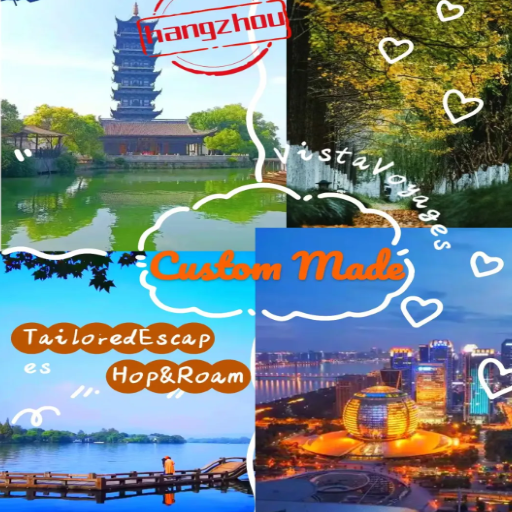
What Are the Best Hangzhou Tour Packages Available
Numerous Hangzhou tour packages will satisfy almost any preference. For travelers who are coming for the first time, a standard day tour will usually cover the West Lake, Lingyin Temple, and the bamboo path of the Dragon Well Tea Plantation. To further enhance cultural immersion, many packages include multi-day tours that feature these highlights in addition to tea tasting, trips to the historic Wuzhen Water Town, and even cycling around the beautiful lake. For those who prefer a more upscale travel experience, premium packages include private tour guides, a chauffeur, and even fine dining and accommodation in some of Hangzhou’s top restaurants and hotels. Whether it is a short break or an extensive holiday, you will have your ideal tour package.
Choosing the Right Tour Guide for Your Trip
Choosing the right tour guide can significantly add to your visit to Hangzhou. They need good historical, cultural, and geographical knowledge of the region and its features, like West Lake or Lingyin Temple. For a hassle-free trip, they need to look out for these characteristics. The guide must speak your preferred language fluently for easy communication. The guide must be certified by the local tourism bureau:
- Language Proficiency
- Ensure the guide is fluent in your preferred language to facilitate effective communication.
- Certification and Experience
- Officially licensed by the local tourism bureau.
- A minimum of 3-5 years of guiding experience in Hangzhou is recommended for comprehensive expertise.
- Customization and Communication
- Ability to tailor the tour to your interests, such as cultural landmarks, nature trails, or culinary experiences.
- Clear communication of itineraries with flexibility for adjustments.
- Aspects
- Tour Duration: Available for half-day, full-day, or multi-day tours.
- Group Size Compatibility: Expertise in small groups (2-10 people) or larger groups (up to 30).
- Pricing Transparency: Average rates range from $50 to $150 per day, depending on group size and tour services.
- Reputation and Reviews
- Checkmark the recommended reviews and ratings on trusted sites such as TripAdvisor or local travel agencies for reliability and quality of service.
Considering all these factors, the best-suited guide to guarantee an unforgettable experience is selected for the Hangzhou adventure.
Finding the Best Price and Value
To get the best value while hiring a guide in Hangzhou, pay close attention to the following factors that are based on extensive research from various sources:
- Compare Pricing Across Services
- Pricing on private tours in Hangzhou ranges from $50 to $150 per day and varies according to the guide’s experience and the offered services.
- For multi-day bookings, group tours, or groups of 10 or more, the price may be as low as $40 per day per person.
- Assess What is Included in the Price
- Ensure that the rate caters to transport (private vehicle, bicycle, public transport fees), meals, and tickets to the attraction, where applicable.
- Some guides offer premium packages that include airport pick-up, local snacks, and cultural activities like tea ceremonies.
- Utilize Reliable Online Platforms
- Sites like TripAdvisor, Viator, and GetYourGuide have detailed reviews, prices, and photos.
- These platforms’ comparison features help you find low-cost quality guides that meet your requirements.
- Flexible Booking and Cancellation Policies
- Tourists should also try to find guides or agencies that allow no-charge cancellations or rescheduling up to 24-48 hours before the tour.
- Specific guides will offer partial refunds for last-minute cancellations depending on the case.
Balancing these factors with proper research will help you book a guide who will not strain your budget while providing excellent service. This will guarantee that your time in Hangzhou will be pleasurable and reasonably priced.
Exploring Private Tour Options
Looking for a private tour in Hangzhou means looking for the best flexibility and quality offered and an experience tailored to one’s needs. From what I have analyzed from TripAdvisor, Viator, and GetYourGuide, It’s possible that private tours can come with flexible plans, personal guides, and even chauffeured vehicles. Things to take note of would be group size (typically, 1-6 people for private tours), time frame (anything from half-day tours of four hours to full-day tours of eight or more), as well as the starting cost estimate: roughly $120-$200 per group depending on inclusions.
I am positive that these private tours include essentials such as West Lake, Lingyin Temple, and the Longjing tea plantations. Combine these with other great offers such as hotel pick-ups and a booking policy, and you have a winner. Additional filters on multilingual guides or activity packages (tea ceremonies, local dining, etc.) help narrow the selection. With this in mind, my goal was to obtain an experience tailored to precise expectations regarding time and requirements, along with great satisfaction and value for the money spent.
References
Frequently Asked Questions (FAQ)
Q: What are the must-see attractions in Hangzhou city?
A: When visiting Hangzhou city, the top attractions you shouldn’t miss include the iconic West Lake, the serene Lingyin Temple, and the picturesque Dragon Well Tea Village. These sites encapsulate the best places to experience Hangzhou’s natural beauty and cultural history.
Q: How can I plan a Hangzhou tour effectively?
A: To plan a successful Hangzhou tour, consider consulting a travel guide or consultant specializing in China tours with Hangzhou. They can help you create a customized tour plan that includes the best of Hangzhou. Remember to allocate enough days to explore its diverse offerings.
Q: What is the best way to travel from Shanghai to Hangzhou?
A: The most efficient way to travel from Shanghai to Hangzhou is by bullet train. It is a quick and comfortable journey that allows you to enjoy the best of both cities in China.
Q: Can you recommend some popular Hangzhou cuisine to try?
A: In Hangzhou, try local delicacies such as Dongpo Pork, West Lake Fish in Vinegar Gravy, and Beggar’s Chicken. These dishes provide an authentic Hangzhou culinary experience that shouldn’t be missed.
Q: What should I include in my tour of West Lake?
A: Your tour of West Lake should include a boat ride on the lake, a visit to the beautiful gardens surrounding it, and a stroll along the famous Su Causeway. These activities will ensure that you capture enduring memories of Hangzhou.
Q: Are there any private tour options available in Hangzhou?
A: Numerous private tour options in Hangzhou offer personalized experiences. These tours often include customized itineraries and can provide a more intimate and tailored exploration of the city’s highlights.
Q: How can I get around Hangzhou city during my trip?
A: Hangzhou City offers various transportation options, including buses, taxis, and rental bikes. For a more immersive experience, consider walking or biking around West Lake and other central areas to enjoy the scenery and explore the best local spots.
Q: What is the best time of year to visit Hangzhou?
A: The best time to visit Hangzhou is spring (March to May) and autumn (September to November) when the weather is mild and the natural scenery is most beautiful. This is the perfect time to enjoy a trip to Hangzhou and explore its attractions.
Q: How can I ensure my tour provides an authentic Hangzhou experience?
A: To ensure your tour provides an authentic Hangzhou experience, work with a travel consultant to include visits to traditional tea villages and local markets and recommend the best local restaurants. A genuine experience often includes engaging with the local culture and cuisine.
Q: How do I reach Hangzhou Xiaoshan International Airport from the city center?
A: You can reach Hangzhou Xiaoshan International Airport from the city center by taxi, using the airport shuttle, or using public transport options like the metro. Each mode offers a convenient way to get to the airport, depending on your budget and schedule.